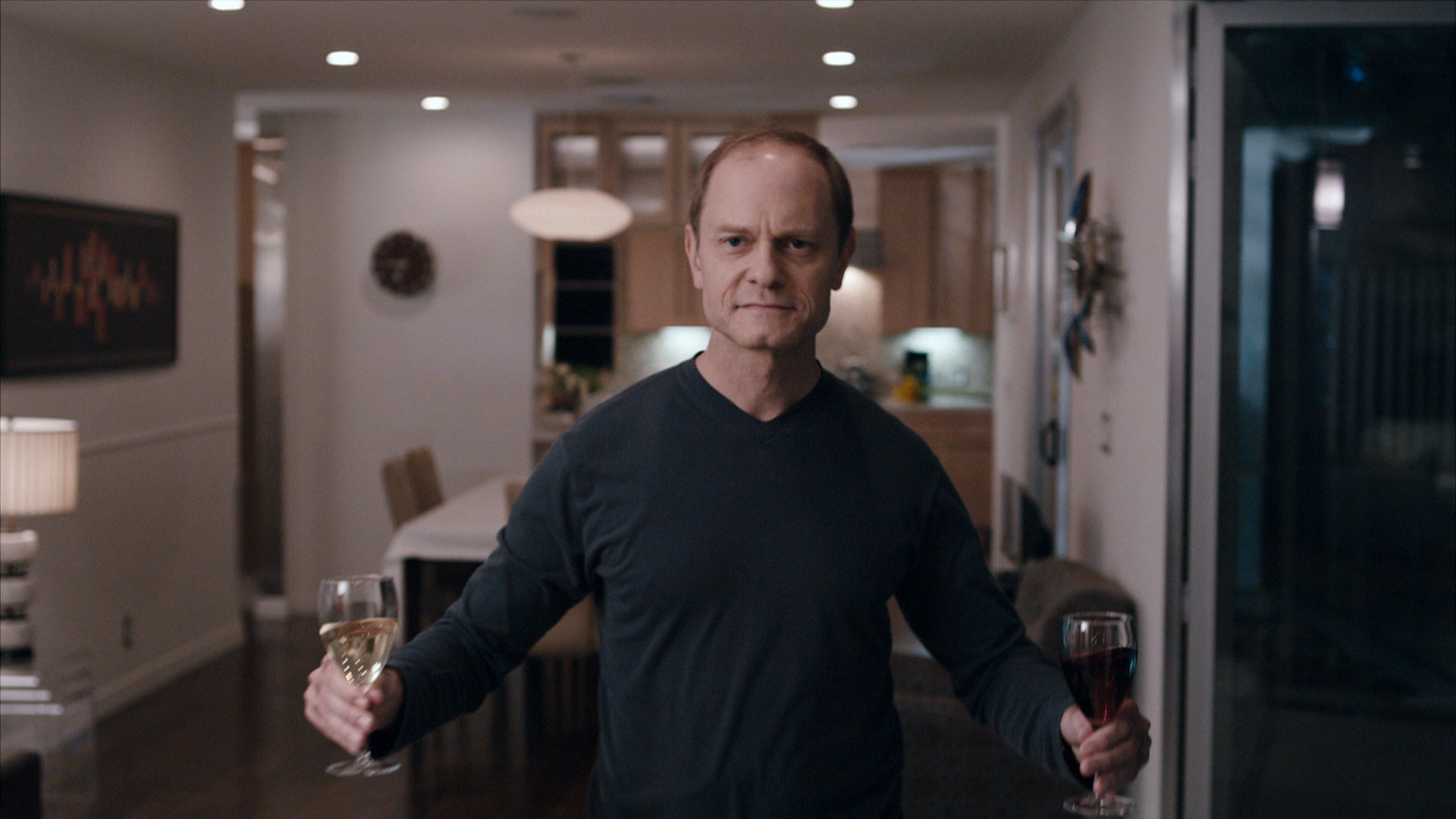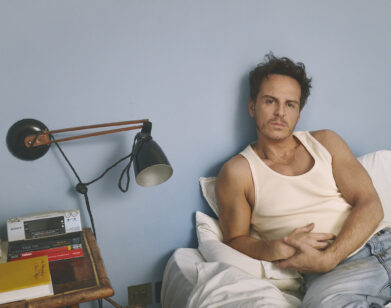David Hyde Pierce Has a Personality Parade

DAVID HYDE PIERCE IN THE PERFECT HOST. PHOTO COURTESY OF MAGNOLIA PICTURES
Wit is not a reach for David Hyde Pierce, who spent 11 years playing Kelsey Grammer’s brother, Niles Crane, on Frasier. Even while discussing his newest project, the intense psychological thriller The Perfect Host, the four-time Emmy winner began most of his replies to our questions with a quip. His character, Warwick Wilson, similarly injects light touches into the film’s dark plot, which Pierce calls a “twisted, twisty” cat-and-mouse game. The film’s intrigue derives from well crafted, genuinely surprising plot turns which spring from Wilson’s multiple personalities and extensive fantasy life.
Clayne Clawford plays John Taylor, a bank robber who charms his way into Wilson’s apartment in a manner reminiscent of Six Degrees of Separation, as Wilson prepares to host an imaginary dinner party (complete with colorful guests and lively banter). When Taylor takes Wilson hostage, Wilson turns the table on his captor, before devolving into scenarios that teeter on the precipice of nightmarish violence—or do they? The most astonishing surprise is saved for last—when Pierce’s “real” persona is revealed.
We asked Pierce about doing drama versus comedy, playing multiple personalities and, of course, hosting dinner parties.
LORRAINE CWELICH: How did you decide to work with first-time filmmaker Nick Tomnay?
DAVID HYDE PIERCE: I had been drinking. No, I read the script and really liked it; obviously this character is incredible for any actor to play. Also, it’s a really smart, funny, interesting, twisted, twisty script. I saw a short, so I got a glimpse of Nick’s style as a filmmaker. It’s really clear and strong, but not heavy-handed, which is important to me. If there’s humor in a script, you’re allowed to laugh as opposed to having it shoved it in your face.
CWELICH: Do you give a lot of dinner parties?
PIERCE: No one ever comes back! No, I’m a terrible cook. My partner and I have friends over occasionally. You would think I’m a perfect host. But I’m a terrible disappointment.
CWELICH: If you could host a dinner party with anyone in the world, who would it be?
PIERCE: I’d say I’d have Beethoven over for dinner, but then the whole night would be, [shouting] “What?!”
CWELICH: Did you research multiple personality disorder?
PIERCE: No… but I did. [laughs] I did a little bit of work on hallucinations and delusions, so I understood how they worked and what they felt like in schizophrenia. But really that was peripheral; what I tried to bring to life was what he had given me. I’m usually someone who’d do a lot of research, but in this script, it was all on the page. Because it’s so well-written, but also because the character is so complex that you don’t need to look elsewhere to find new levels; you’re busy enough playing all that’s there. For me, it was more about understanding the moment-to-moment motivation of what he’s doing.
CWELICH: When you’re approaching a character who is literally playing several different characters within one, how did you tap into the darker aspects of yourself, as well as the more authoritative figure you portray?
PIERCE: I think that most of us are all of those people. Most of us aren’t crazy psychotics, but most of us are a whole bunch of different people. I think when you are in a position of authority, that doesn’t remove that from you. You find it all time—you read the paper and find that yet another person in a position of authority has revealed themselves to be odd in some particular and sometimes criminal way. I think being an actor in general is acknowledging that we are constantly playing different roles, that we have all these different parts of ourselves and instead of pretending that you are just one thing, as an actor you get to admit that you’ve got all this stuff going on.
CWELICH: How did you approach Warwick to make even his bad acts more sympathetic?
PIERCE: I want you on my jury if I’m ever arrested! There’s a trap when you’re playing crazier characters, that you try to “solve” the characters and make them what they’re not; I didn’t want to do that. We found the reasons, even if they’re not stated, why he does the things he does. You get the sense that there is a need that he has that maybe is expressed differently than we all would express it, but are not that different from the needs that we all have—to have friends, to have someone to spend time with, to have a life that is not just sitting home in your house with your things. It’s the same thing with the character on Frasier—any of those extreme characters; sometimes the extremity allows you as an actor to let people see more of themselves.
CWELICH: What’s up next?
PIERCE: I’m about to direct for the first time, a musical, which we’ll do in the fall, and then after that, I’m acting in a new play, Close Up Space. The musical is a comedy, It Shoulda Been You. I’ve been talking to all the directors I know, including Nick, to get advice. [He said] you prepare and prepare so that you can throw it all out, and that’s what I’ve heard the most from all different directors, be it film, television, plays.
CWELICH: What are the pleasures and challenges of doing intense drama versus comedy?
PIERCE: I always try to find projects where I don’t have to choose between the two, because the most interesting stuff has both. The Perfect Host is a great example of that. Yes, it is very intense. There is also some really genuinely funny stuff that comes out of it. And even on something as what could be called as “light” as Frasier, the humor came out of some very high-stakes stuff—love, professional jealousy, things like that. I like that kind of mix. That’s what I’m drawn to.
THE PERFECT HOST OPENS JULY 1.






